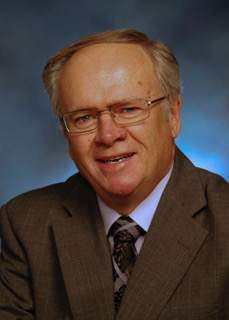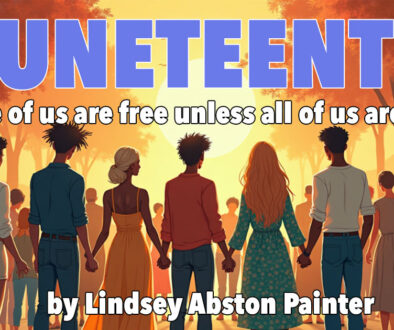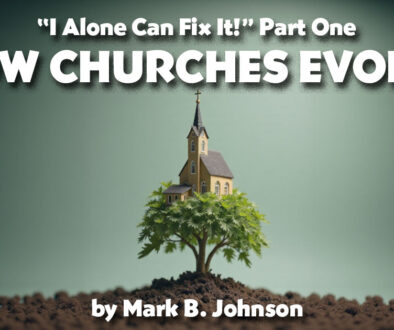Should Adventists Remain Neutral When Politicians Have a Religious Agenda?
by Robert Crux | 31 October 2024 |
Many Adventists believe that the best stance toward the controversies in the political world is neutrality: ignore grievous social injustice and religious upheaval, and remain stolidly apolitical. But do we have that privilege? Archbishop Desmond Tutu once said:
“If you are neutral in situations of injustice, you have chosen the side of the oppressor….If an elephant has its foot on the tail of a mouse and you say that you are neutral, the mouse will not appreciate your neutrality.”
A position of neutrality keeps the status quo in place. Should the status quo become oppressive, neutrality only adds to the oppression. Staying silent only perpetuates abusive systems and allows people to get away with things they should be held accountable for.
Some argue, “What’s the point if Jesus is about to return and bring this whole thing to its appointed end?” But if we say nothing about human rights and injustice, we become complicit by silence.
Christianizing the nation?
We are living in a time of a crisis of faith in America. The Christian nationalist movement has lost the central message of Christianity when it tries to Christianize the nation by force. A religion that demands that you see things my way and rejects you if you don’t, misrepresents the character of God and only divides people.
The gospel of Jesus Christ has never been spread by force or coercion (Zechariah 4:6). In his book Vanishing Grace: Bringing Good News to a Deeply Divided World, Phillip Yancey warns that the church risks “losing its central message” if it tries to Christianize any nation. Yancey says:
“When the church accepts as its main goal the reform of the broader culture, we risk obscuring the gospel of grace and becoming one more powerbroker. That is how many in the secular world view us now, as a right-wing conspiracy intent on passing laws against them. In the process, they miss the good news of the gospel, that Christ died to save sinners, to free us from guilt and shame so that we can thrive in the way God intended.”
The Bible does not specify a religion or a nation in order to follow Jesus. However, the Christian nationalist movement, aligned with right-wing politicians, uses Christian language to cloak sexism and hostility to Black people and immigrants. The goal appears to create a white Christian America.
Edward Lempinen writing for Berkeley News says:
“As the momentum shifts in their favor, some prominent right-wing political leaders are becoming more explicit, pressing views that verge on religious authoritarianism.”
Losing our voice
Many Adventists are content sitting back doing nothing. Some even support laws legislating evangelical beliefs. Have some Adventists become accidental Christian nationalists by default?
When racism and discrimination among white Christians is higher than among the nonreligious, you know there is a problem. When the Beatitudes are considered too subversive or too socialist for today’s Christians, you know there is a religious crisis.
In the face of such a religious crisis in America, doing nothing or saying nothing is not a good option for Seventh-day Adventists. Ellen White said:
“If God abhors one sin above another, of which His people are guilty, it is doing nothing in case of an emergency…. Indifference and neutrality in a religious crisis is regarded of God as a grievous crime, and equal to the very worst type of hostility against God.” (3T 280.3)
What does this mean for us today? Followers of Jesus have been accused at times of being so heavenly minded that they are no earthly good. Sometimes, when the church shows concern about oppression, injustice, and violence against the vulnerable, it is accused of becoming a social justice warrior—and that is somehow regarded as a bad thing.
Currently, Adventist leaders aren’t willing to take that risk.
The real victims
Adventists have historically had among us activists: people who spoke against slavery, fought to defend wartime non-combatants, and participated in the civil rights movement of the 1960s and 1970s.
For those who participated in the civil rights movement, community awareness of the real victims and the vulnerable living on the margins of society superseded the conservative ideology and theology that came to dominate the church after the passing of its founders. After all, Proverbs 31: 8-9 told us to
“speak up for those who can’t speak for themselves, for the rights of those who need an advocate…. Speak up, judge righteously, and defend the cause of the poor and needy” (CJB).
Over the last few decades there have been very few documented examples of Adventist church leadership speaking publicly to the socio-political injustices that have ravaged American society. One who did was former North American Division president Daniel Jackson. He spoke often on behalf of Adventists addressing the church shooting in South Carolina, the mass shooting in Florida, and the racial tensions that gripped the nation during his tenure of service.
If a secular profession can hold its practitioners to noble standards of righteousness and justice, should Christian organizations live by anything less? In fact, the primary criterion for entrance into Heaven is not doctrinal beliefs, but on how we served those who could not help themselves (Matthew 25: 35-40).
Eschatological inevitability
There is a sense of inevitability in the eschatological message of Seventh-day Adventists: inevitable victory, inevitable vindication. Inevitability can be motivating—but it can also immobilize us when it comes to speaking to current events. Adventist theology risks being co-opted into justifying the world as it is, in matters such as the divide between the poor and the powerful.
Amos 5:18 says,
“Woe to you who are longing for the day of the Lord, for what purpose will the day of the Lord be to you? It will be darkness, not light” (NASB).
In other words, the expectations of the day of the Lord kept people in denial about their true condition. We can’t allow the doctrine of prophetic inevitability to silence our voices. Perhaps we are too focused on what comes next rather than what is here now.
The real question victims are asking us is not “Is there life after death?” but rather “Is there an abundant life now?”
Project 2025
Project 2025 is the de facto platform of the Republican Party, should they take back the White House in 2025. Central to the ideology of Project 2025 is the right’s attempt to put the Bible ahead of the Constitution.
Among the items in the document, Project 2025 mentions the Sabbath explicitly as a concept that the government should attempt to promote and support, for a “communal day of rest.”(589) The author of this chapter (18), Jonathan Berry, states that:
“God ordained the Sabbath as a day of rest, and until very recently the Judeo-Christian tradition sought to honor that mandate by moral and legal regulation of work on that day….” (589)
When the above quote mentions “Sabbath” or “that day,” it should be clear to readers that the author’s version of morality means Sunday keeping.
Guthrie Graves-Fitzsimmons, in his MSNBC opinion piece “The right’s Project 2025 wants to make faith the government’s job,” writes:
“Instituting ‘biblically based’ policies, saving souls and inducing Sabbath observance constitute a direct attack on religious freedom, a freedom guaranteed by the First Amendment, which keeps the government out of religion.”
Liz Hayes, associate vice president of communications at Americans United for Separation of Church and State, says many sections of the Project 2025 document “advocate policies that would undermine church-state separation and religious freedom.” She describes Project 2025 as a Christian nationalist playbook that “outlines a broad scheme to overthrow American democracy and install a theocracy.”
Another important item addressed in the policy agenda of Project 2025 has important religious liberty implications for Adventists and other Christian denominations. It addresses one of the old battlegrounds of the culture wars: the ability of religious employers to discriminate. The policy proposal under Department of Labor (Chapter 18) states:
“The President should make clear via executive order that religious employers are free to run their businesses according to their religious beliefs, general nondiscrimination laws notwithstanding.” (586)
This attitude towards civil rights legislation cannot but lead to religious bigotry. Citizens who expect fair and equal treatment in American society will be disappointed if Project 2025 becomes reality. Ultimately, Project 2025 changes religious liberty for all into religious privilege for only a select group of Christians.
Every Adventist should be very concerned when government wants to explicitly define uniquely religious terms such as “Sabbath” and “day of rest.”
Finding our voices again
Many Adventists of old were activists. Will Adventist members and leadership find their voices again, condemning policy proposals that attempt to impose a religious orthodoxy or preference on its citizens?
There comes a time when silence is betrayal. When Martin Luther King Jr. reflected on the Civil Rights movement in 1968, he said:
“In the end, we will remember not the words of our enemies, but the silence of our friends.… Our lives begin to end the day we become silent about things that matter.“
Perhaps the world has the right to reprimand us as the sailors did Jonah: “How can you sleep? Get up and call on your god!” (Jonah 1:6). That’s the call to action!
 Robert D. Crux, Ed.S, worked as a teacher, principal, and superintendent of schools over a period of 35 years in Adventist education before retiring in 2016 to Lawton, Michigan, where he enjoys writing, reading, biking, model railroading, and, most of all, his grandchildren.
Robert D. Crux, Ed.S, worked as a teacher, principal, and superintendent of schools over a period of 35 years in Adventist education before retiring in 2016 to Lawton, Michigan, where he enjoys writing, reading, biking, model railroading, and, most of all, his grandchildren.




